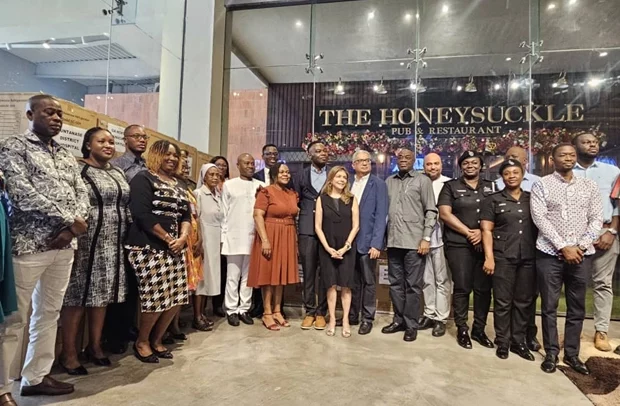Representatives of the various Hospital together with the Group Heads of Melcom
The Melcom Group of Companies has donated 25 medical refrigerators to 25 health facilities across the country as part of its Corporate Social Responsibility (CSR) initiatives.
The specialised refrigerators will enable the beneficiary hospitals to store blood and vaccines safely, enhancing their capacity to provide quality healthcare.
Speaking at the presentation ceremony, Melcom Managing Director, Ramesh Sadhwani, said improving public health is a central pillar of the company’s CSR agenda.
“We are convinced that a healthy population is an important prerequisite for high productivity. This donation aligns with our annual blood donation drive to help stock the nation’s blood banks,” he said.
Mr. Sadhwani disclosed that Melcom’s blood donation campaigns over the past decade have yielded approximately 12,000 pints of blood. While pledging the company’s continued support for the National Blood Bank, he expressed concern that Ghana’s blood donation rate remains below World Health Organisation (WHO) standards and urged Ghanaians, particularly the youth, to donate regularly.
“We must save the lives of pregnant women, accident victims, and anaemic children,” he said.
Group General Manager, Francis Sam, said each medical refrigerator costs about US$5,000, underscoring the value of the donation.
He added that promoting community health ultimately strengthens the customer base that supports the company.
“We want a healthy Ghanaian community that can patronise our shops and grow with us in prosperity,” he noted.
The beneficiary facilities include GA West, East, and North Municipal Hospitals; LEKMA Hospital; Shai-Osudoku District Hospital; Cape Coast Teaching Hospital; Kuntanase District Hospital; Essikado Hospital; Tarkwa Government Hospital; 37 Military Hospital; and Tema General Hospital.
The rest are Greater Accra Regional Hospital; Police Hospital; Ashaiman Polyclinic; Korle Bu Teaching Hospital; Sefwi Wiawso Municipal Hospital; Nsawam Government Hospital; Techimantia Polyclinic; Holy Family Hospital; St. Francis Xavier Hospital; Trauma Specialist Hospital; Greater Accra Blood Centre; Ho Teaching Hospital; Bibiani Municipal Hospital; and Manhyia District Hospital.
By Florence Asamoah Adom


